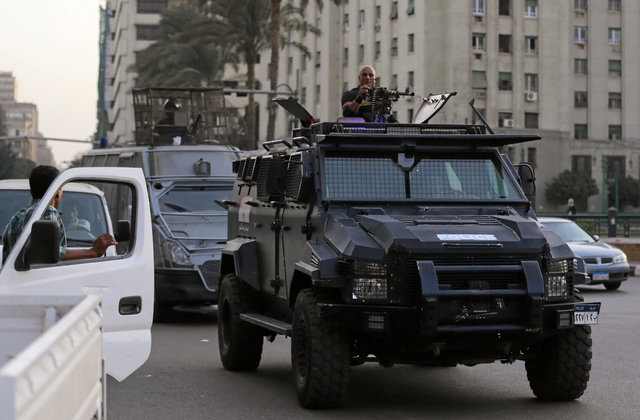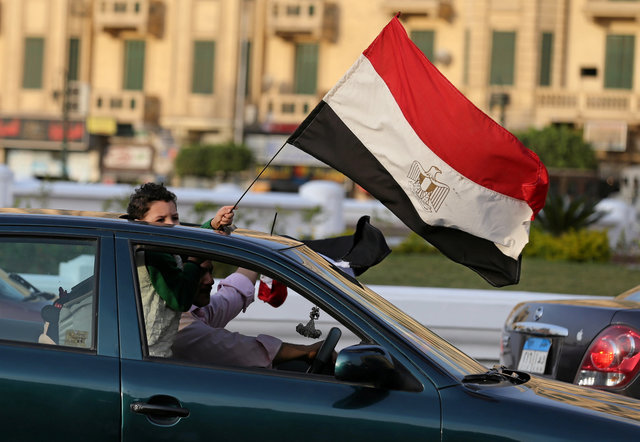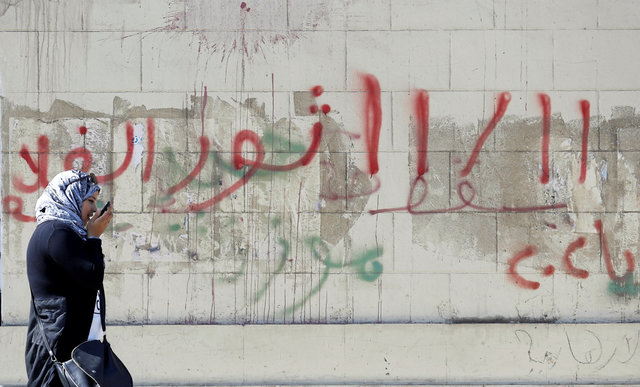Egypt imposes big security clampdown, protests fail to materialise
 Members of security forces secure Tahrir Square in Cairo, Egypt, November 11, 2016. (Photo: Reuters)
Members of security forces secure Tahrir Square in Cairo, Egypt, November 11, 2016. (Photo: Reuters) CAIRO – Egypt imposed a big security clampdown in its cities on Friday as mass demonstrations called to protest against austerity measures failed to take place.
Riot police and armoured vehicles filled the otherwise empty streets of central Cairo, but most people stayed at home.
President Abdel Fattah al-Sisi has urged Egyptians not to protest and warned that there would be no going back on economic reforms, no matter how much pain they might cause.
In a boost for the government, the International Monetary Fund’s executive board approved a three-year, $US12 billion loan to Egypt aimed at supporting the reforms, and the central bank said it received a first tranche of $US2.75 billion.
A little-known group calling itself Movement of the Poor had called for Egyptians to protest on November 11 against deepening austerity measures the government says are required to save the Arab world’s most populous nation from financial ruin.
But big protests failed to materialise across the country by 8:30 pm (local time). Police dispersed several small gatherings and there were some minor clashes. No one was killed or injured.
“The Egyptian people chose stability and development and rejected any calls against that,” state television quoted Prime Minister Sherif Ismail as saying.

A boy and his father carry Egyptian flags as they support Egyptian President Abdel Fattah al-Sisi at Tahrir square in Cairo, Egypt, November 11, 2016. (Photo: Reuters)
The calls to protest began in August, but gained traction on social media last week after Egyptraised fuel prices and floated its currency – a move welcomed by bankers but condemned by ordinary people as the latest blow to their diminishing spending power.
The usually busy Tahrir Square was deserted except for armoured vehicles with tear-gas launchers and dozens of riot police. Authorities shut down the Sadat metro station to prevent potential demonstrators reaching the square, which has in the past been a centre of political protest.
“I don’t think anything will happen but this security presence scares people and ensures nothing does,” said Shenouda Ishak, a driver in the Cairo district of Shubra.
“SCARES PEOPLE”
There was a heavy security presence in other areas of Cairo, and other cities including Alexandria, Suez, and Minya.
The protests won little support from prominent activist and opposition groups, though they have been backed by the outlawed Muslim Brotherhood.
But in a country where street politics helped to unseat two presidents within two years, authorities were keen to deter protesters. Dozens of people were detained in recent weeks, accused of inciting unrest.

A woman walks and speaks in her mobile in front of a wall with graffiti in support of the Ghalaba Movement, asking Egyptians to participate in demonstrations against the Egyptian regime on November 11, in Cairo, Egypt November 9, 2016. The words read, “11/11 Revolutions of Ghalaba (Marginalised)”. (Photo: Reuters)
Protesters camped in Tahrir Square in an 18-day demonstration that ended Hosni Mubarak’s 30-year rule in 2011. When Egyptians took to the streets in mid-2013 to end a year of Brotherhood rule, general-turned-president Sisi intervened.
Security sources said police chased dozens of protesters away from Arbaeen Square in Suez, near the place where the first protester was killed in 2011. Protesters on Friday chanted against high prices.
In the coastal province of Beheira, police fired tear gas at protesters who threw rocks back. Security sources said 98 suspected Brotherhood supporters were arrested in three cities in Beheira, 14 in Alexandria, and 10 in Suez.
Muslim Brotherhood activists held a limited protest in the hometown of former President Mohamed Mursi but did not clash with police.
– Reuters

